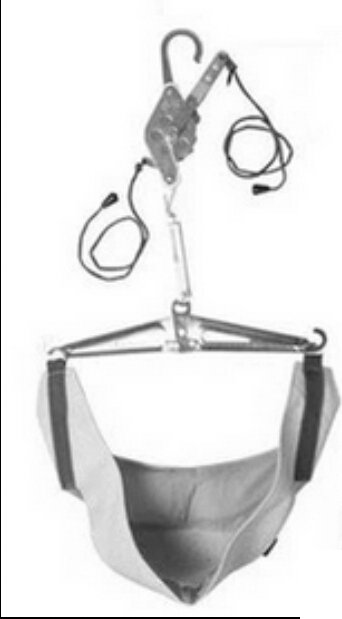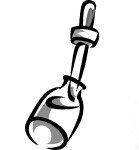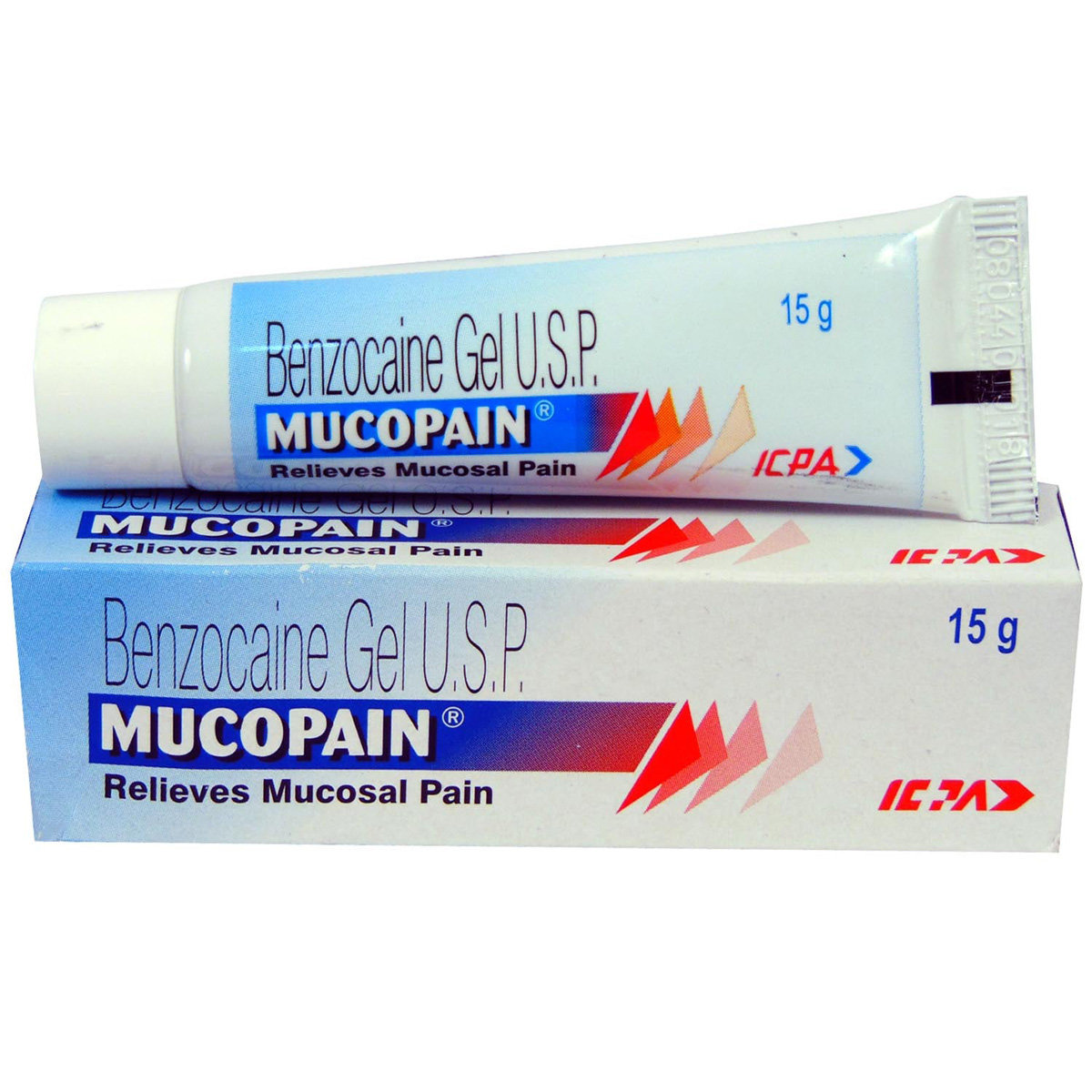Benzocaine
About Benzocaine
Benzocaine belongs to a group of medicines called local anaesthetics used to relieve pain and irritation associated with mouth ulcers, canker sores, mouth irritation, mouth and throat pain, and sore throat. It is also used to relieve pain associated with toothache, sore gums, braces, dentures, and minor dental procedures.
Benzocaine contains ‘Benzocaine’ that blocks the pain signals from the nerves to the brain, thereby numbing the area and providing relief from pain.
In some cases, Benzocaine may cause common side effects such as irritation and tingling sensation. Most of these side effects do not require medical attention and will resolve gradually over time. However, you are advised to talk to your doctor if the side effects persist or worsen.
Consult your doctor if you are pregnant or breastfeeding before using Benzocaine. Do not use Benzocaine in more than recommended doses, or on a large area of skin for a longer duration unless advised by the doctor. Benzocaine is not recommended for children below 2 years. Consult your doctor if your condition does not improve despite using Benzocaine for a week.
Uses of Benzocaine
• Oral Ulcer Treatment: Benzocaine promotes healing and reduces inflammation in painful mouth ulcers.
• Relief from Oral Mucositis: Benzocaine relieves oral mucositis, a painful condition that causes inflammation and ulceration in the mouth and frequently affects people undergoing chemotherapy or radiation therapy.
• Sore Throat Relief: Benzocaine helps soothe sore throats by reducing inflammation and providing temporary pain relief, making it easier to swallow and feel more comfortable.
• Antimicrobial Action: Benzocaine can effectively kill a wide range of germs, including bacteria, viruses, and fungi, helping to combat infections.
• Oral Hygiene: Using Benzocaine for regular gargling can lead to better oral health by minimizing plaque and tackling bad breath, all thanks to its germ-fighting abilities.
Medicinal Benefits
Benzocaine belongs to a group of medicines called local anaesthetics used to relieve pain and irritation associated with mouth ulcers, canker sores, mouth irritation, mouth and throat pain, and sore throat. It is also used to relieve pain associated with toothache, sore gums, braces, dentures, and minor dental procedures. Benzocaine contains ‘Benzocaine’ that blocks the pain signals from the nerves to the brain, thereby numbing the area and providing relief from pain.
Directions for Use
- Benzocaine can be taken with food to prevent stomach upset or as advised by your doctor.
- Follow your doctor's instructions on the dosage and timing of this medication.
- Apply it to the affected area using a cotton swab or fingertip.
Storage
Side Effects of Benzocaine
- Irritation
- Tingling sensation
Drug Warnings
Do not use Benzocaine if you are allergic to any of its components. Inform your doctor if you have a hereditary metabolic disorder affecting red blood cells (eg, glucose-6-phosphate-dehydrogenase deficiency, hemoglobin-M disease, NADH-methemoglobin reductase deficiency, pyruvate-kinase deficiency), heart disease, lung or breathing problems, diabetes, or mouth infections. Avoid contact of Benzocaine with eyes or nose; rinse with water immediately if contact occurs. Consult your doctor if your condition does not improve despite using Benzocaine for a week, or if it worsens with a rash, fever, headache, vomiting, swelling, or stomach upset. Let your doctor know if you are taking other medicines or herbal supplements.
Drug Interactions
Drug-Drug Interactions: No interactions found/established.
Drug-Food Interactions: No interactions found/established.
Drug-Disease Interactions: No interactions found/established.
Drug-Drug Interactions Checker List:
Safety Advice

Alcohol
consult your doctorIt is not known whether Benzocaine interacts with alcohol. Please consult your doctor.

Pregnancy
consult your doctorLimited information is available regarding the usage of Benzocaine during pregnancy. Please consult your doctor. Your doctor may recommend this medicine if the benefits outweigh the risks.

Breast Feeding
consult your doctorLimited information is available regarding the usage of Benzocaine during breastfeeding. Please consult your doctor if you have concerns.

Driving
cautionIt is unknown if Benzocaine affects your ability to drive. Drive or operate machinery only if you are alert.

Liver
consult your doctorPlease consult your doctor if you have any concerns regarding the usage of Benzocaine in patients with liver impairment.

Kidney
consult your doctorPlease consult your doctor if you have any concerns regarding the usage of Benzocaine in patients with kidney impairment.

Children
cautionBenzocaine is not recommended for children below 2 years. Benzocaine should be used with caution in children and only if advised by the doctor.
Habit Forming
Diet & Lifestyle Advise
- Avoid eating foods that irritate mouth ulcers.
- Avoid acidic foods as they can irritate mouth ulcers.
- Include whole grains and alkaline fruits and vegetables,
- Eat a healthy, well-balanced diet. Include multivitamins, especially B12, folate, zinc, and iron.
- Maintain good dental hygiene by brushing after meals and regularly flossing.
- Gargling with salt water also helps in treating mouth ulcers.
- Apply ice or damp tea bags to numb the pain.
- Try natural remedies such as chamomile tea, Echinacea, myrrh and liquorice root.
Patients Concern
Disease/Condition Glossary
Mouth ulcers: Mouth ulcers, also referred to as canker sores, are tiny, uncomfortable lesions that appear in the mouth or at the gum line. You might feel uneasy while eating, drinking, or conversing while wearing these. Mouth ulcers are not contagious and typically heal within a few weeks. Mouth ulcers are more likely to occur in people with a history of canker sores in their families. Mouth ulcers may be brought on by minor mouth trauma from dental work or hard brushing, acidic foods, a lack of essential vitamins, dental braces, emotional stress, and viral, bacterial, or fungal infections.
FAQs
Benzocaine is used to relieve pain and irritation associated with mouth ulcers, canker sores, mouth irritation, mouth and throat pain, and sore throat. It is also used to relieve pain associated with toothache, sore gums, braces, dentures, and minor dental procedures.
Benzocaine temporarily blocks the pain signals from the nerves (painful site) to the brain, thereby numbing the affected area and providing relief from pain.
Benzocaine should not be used for longer durations unless advised by a doctor. If your condition does not improve despite using Benzocaine for a week, consult your doctor, he/she may advise you on an alternate medicine.
Do not use Benzocaine in more than recommended doses, or on a large area of skin for a longer duration unless advised by the doctor. Use Benzocaine as advised by the doctor.
Avoid eating for at least 1 hour after using Benzocaine. Benzocaine numbs the skin, this might cause biting of the tongue.
Benzocaine is not recommended for use in children below 2 years. Benzocaine should not be used to treat teething pain in infants. Consult your doctor if you have any concerns.







